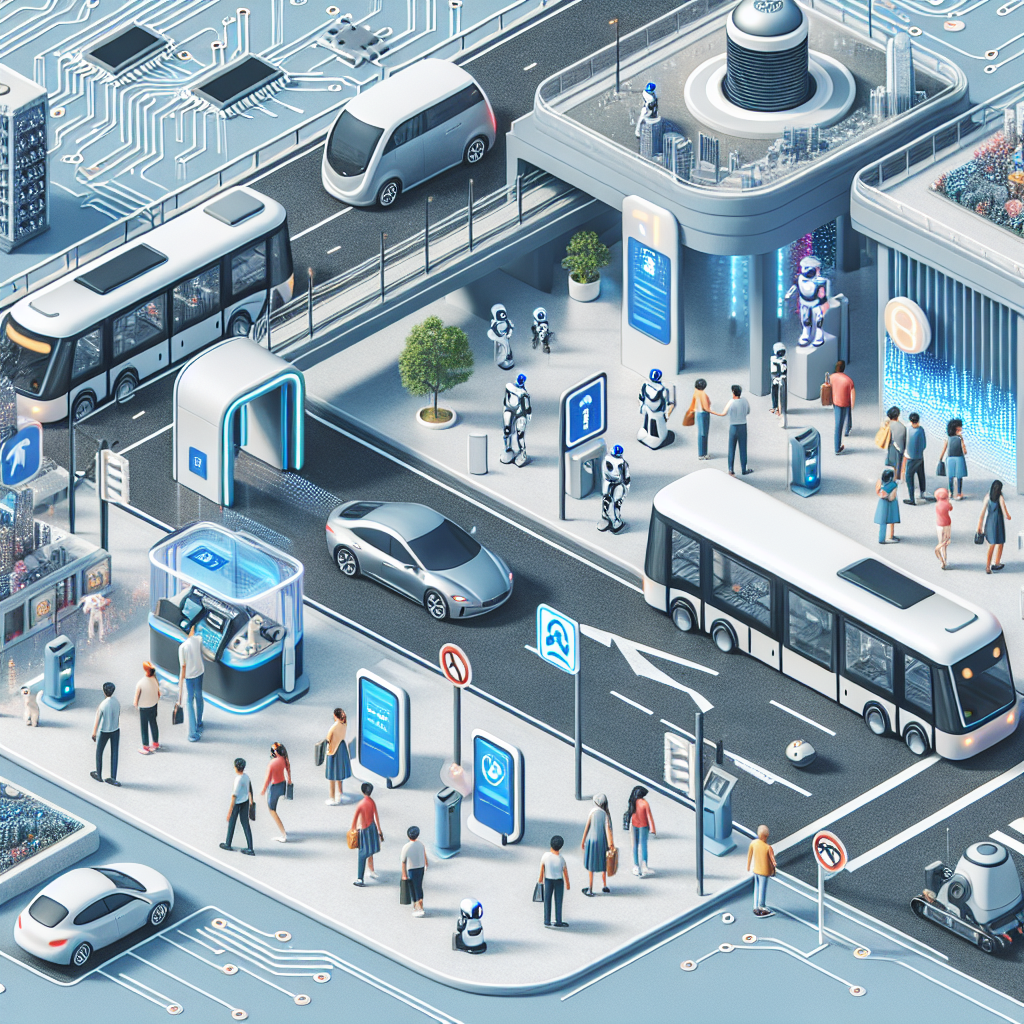Artificial Intelligence (AI) has revolutionized various industries, and government services are no exception. The integration of AI in government services has the potential to improve efficiency, reduce costs, and enhance the overall citizen experience. In this article, we will explore the impact of AI in government services and how it is transforming the way governments operate.
One of the key areas where AI is making a significant impact in government services is in the area of data analysis. Governments collect vast amounts of data from various sources, including citizens, businesses, and other organizations. Analyzing this data manually can be time-consuming and inefficient. AI algorithms can process large volumes of data quickly and accurately, allowing governments to make informed decisions based on real-time information.
For example, AI can be used to analyze traffic patterns and optimize traffic flow in cities, or to predict potential areas of crime and allocate resources accordingly. In the healthcare sector, AI can help governments track and monitor public health trends, identify disease outbreaks, and provide personalized healthcare recommendations to citizens.
Another area where AI is revolutionizing government services is in the area of customer service. Chatbots powered by AI technology can provide instant responses to citizen queries, reducing the need for human intervention and improving the overall customer experience. Government agencies can use AI-powered chatbots to handle routine inquiries, process applications, and provide information on services and programs.
AI can also help governments streamline administrative processes and reduce operational costs. For example, AI algorithms can automate repetitive tasks such as data entry, document processing, and record-keeping, freeing up human resources to focus on more complex and strategic tasks. This can lead to significant cost savings for governments and improve overall efficiency.
In addition to improving efficiency and reducing costs, AI can also help governments improve decision-making and policy-making processes. AI algorithms can analyze data from various sources to identify trends, patterns, and correlations that may not be apparent to human analysts. This can help governments make more informed decisions based on data-driven insights, leading to better outcomes for citizens.
Despite the many benefits of AI in government services, there are also concerns about privacy, security, and the potential for bias in AI algorithms. Governments must ensure that AI systems comply with data protection regulations and ethical guidelines to protect citizen privacy and prevent misuse of personal data. Additionally, governments must be transparent about how AI algorithms are developed and used to prevent bias and discrimination in decision-making processes.
Overall, the impact of AI in government services is undeniable. AI has the potential to transform the way governments operate, improve efficiency, reduce costs, and enhance the overall citizen experience. By harnessing the power of AI technology, governments can better serve their citizens and make informed decisions that benefit society as a whole.
FAQs:
Q: How is AI being used in government services?
A: AI is being used in government services to improve efficiency, reduce costs, enhance customer service, streamline administrative processes, and improve decision-making and policy-making processes.
Q: What are some examples of AI applications in government services?
A: Some examples of AI applications in government services include traffic management, public health monitoring, customer service chatbots, automation of administrative tasks, and data analysis for decision-making.
Q: What are the benefits of AI in government services?
A: The benefits of AI in government services include improved efficiency, cost savings, enhanced customer service, streamlined administrative processes, and improved decision-making based on data-driven insights.
Q: What are some concerns about AI in government services?
A: Some concerns about AI in government services include privacy, security, and the potential for bias in AI algorithms. Governments must ensure that AI systems comply with data protection regulations and ethical guidelines to address these concerns.

